Kirby Larson's Blog, page 12
July 16, 2014
Wednesday Wisdom
"Experience is a good teacher. But her fees are very high."
William Ralph Inge
William Ralph Inge
Published on July 16, 2014 05:30
July 14, 2014
Monday Funday!
I just got a box of these in the mail:
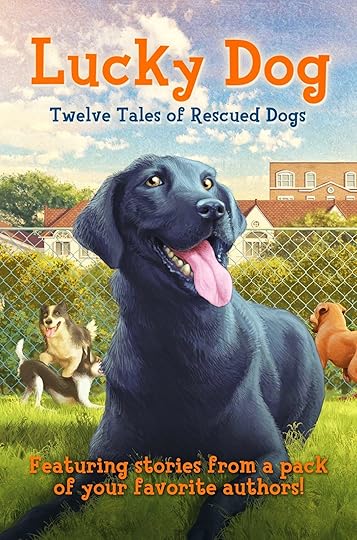
the paperback version of the Lucky Dog anthology that came out in January. Yay!!! My story, Like An Old Sweater, features a King Charles Cavalier Spaniel (no surprise to those of you who know how crazy I am about our Winston).
At IRA, the sublime Becky Anderson, of Anderson's Bookshops (Chicago area) told me she was hand selling the heck out of this collection of dog tales, which made me want to wag all over because the proceeds from this book go to benefit Red Rover (learn more about that organization here).
Because Mondays generally need a little brightening, I've decided to give away 3 copies! Here's all you have to do: share the title of your favorite ever dog book.
First three commenters win a copy of the book!

the paperback version of the Lucky Dog anthology that came out in January. Yay!!! My story, Like An Old Sweater, features a King Charles Cavalier Spaniel (no surprise to those of you who know how crazy I am about our Winston).
At IRA, the sublime Becky Anderson, of Anderson's Bookshops (Chicago area) told me she was hand selling the heck out of this collection of dog tales, which made me want to wag all over because the proceeds from this book go to benefit Red Rover (learn more about that organization here).
Because Mondays generally need a little brightening, I've decided to give away 3 copies! Here's all you have to do: share the title of your favorite ever dog book.
First three commenters win a copy of the book!
Published on July 14, 2014 05:30
July 11, 2014
Friend Friday
Today's guest is Michelle Houts with whom I shared an editor (who is, sadly, no longer at Delacorte). Michelle and I got to meet in person a few years back, when I took that great trip out to Ohio and visited schools in Dublin and Botkins. I adored her first novel, The Beef Princess of Practical County, and am delighted to see her career taking off. She is a hard worker with a huge heart, as you will see below.
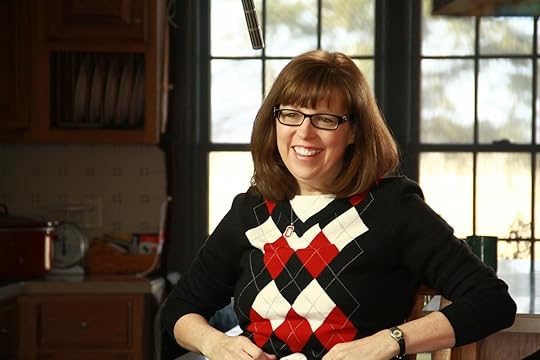 Michelle Houts
Michelle Houts
Before “Bully” was a Verb …
Writers are storytellers. It’s what we do. Sometimes we make them up. And we call it fiction.
Sometimes we take moments and people and events and put words to them so that others can read about those moments and people and events. We call that nonfiction.
I have story to tell. The words are mine. But the story belongs to Mark Boney.
When Mark was born, he was no different than any other baby. His parents were overjoyed to have him in their lives. He cooed and cried and smiled and burped. He was like everyone else.
By the time I met Mark, he was an elementary school student. And it was very clear that his classmates viewed him as someone different from themselves. And they were mean.
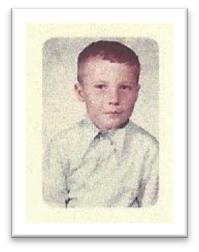
They picked on Mark for being the smartest one in the class. They rolled their eyes and groaned when he raised his hand to ask the teacher another question.
They picked on him for wearing pants that were sometimes too short.
And for buttoning his shirt up all the way to the top button.They teased him because his voice could be loud.
And they mocked the slight Southern twang in his vowels. Mark’s classmates were relentless. He was target of endless teasing and taunting in second grade. In fourth grade. In middle school. And in high school.
I know this not because Mark was one of my students. I know this because Mark was one of my classmates.
So, I now you’re wondering. Was she mean? Did she torment Mark Boney until he cried, “Please, stop. Just stop?”Although many years have passed since Mark and I sat in the same classroom, I’ve often asked myself that question. Did I? Was I mean?
And, to the very best of my ability to recall, I believe the answer is no. I didn’t fling the insults. I wasn’t one who taunted and teased. I never pointed out Mark’s differences. I never tried to see if I could make him cry.
But I did something far worse.
I stood there. I just stood there when a girl made fun of his clothing. I watched and did nothing when the boys made him cry.
Now, this story might just be my recollection a boy from school was picked on by his classmates, but the story doesn’t end here.
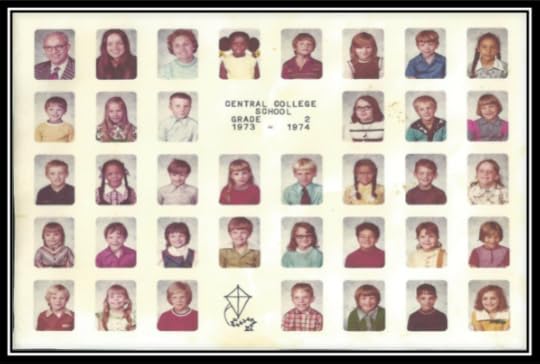
Not so long ago, I was digging through a box of old pictures and found this. My second grade class. You already know which boy is Mark. Which girl is me? Why, I’m the awkward one, third from the right, bottom row.
It was a Thursday, so I posted the picture on my Facebook page as my “Throwback Thursday” post. The comments started coming in. Some from classmates I’ve been in touch with recently and some from folks I haven’t heard from in years. We reminisced. We tried to remember all the names.And then, someone asked.
“Hey, whatever happened to Mark Boney?”For quite a while, no one answered. And then, a post.“Mark married, became a pastor of a church, and had a daughter. Then he died of cancer. Just a year or so ago.”Silence. No one posted.
And, then everyone seemed to be posting at once.“I had a moment of guilt when I was reading that post. A lot of us teased him...... # feeling awful!”“We were closer when we were younger, but as a teenager I was a mean jerk to him.”“He never knew that we both had become pastors. He was a great man.”“I teased Mark a bunch growing up too.”“Wish I could have been nicer.”
One by one, 48-year-old teachers, pastors, businessmen, and writers took a long look at their 8-year-old selves, and expressed sorrow over words they now know they can never take back. Actions they can never apologize for.
It is too late.
For our Mark Boney, it is too late. But, there are Mark Boneys in every school today.
So, with the help of Mark’s only sister, Tammy Boney Martin, in March 2014 I launched The Mark Boney Promise. Every author visit I make now includes Mark’s story. And my new website has a place where students can go and hear Mark’s story. And most importantly, they can make a promise. The Mark Boney Promise to Always treat others with respect, and to Speak up when others do not. Because you don’t have to wait until it’s too late to do the right thing.
Michelle Houts is the author of four books for middle grade readers. The Beef Princess of Practical County, The Practical County Drama Queen, Winterfrost, and her first non-fiction book, Kammie on First: Baseball’s Dottie Kamenshek. Visit Michelle’s website here.
 Michelle Houts
Michelle Houts
Before “Bully” was a Verb …
Writers are storytellers. It’s what we do. Sometimes we make them up. And we call it fiction.
Sometimes we take moments and people and events and put words to them so that others can read about those moments and people and events. We call that nonfiction.
I have story to tell. The words are mine. But the story belongs to Mark Boney.
When Mark was born, he was no different than any other baby. His parents were overjoyed to have him in their lives. He cooed and cried and smiled and burped. He was like everyone else.
By the time I met Mark, he was an elementary school student. And it was very clear that his classmates viewed him as someone different from themselves. And they were mean.

They picked on Mark for being the smartest one in the class. They rolled their eyes and groaned when he raised his hand to ask the teacher another question.
They picked on him for wearing pants that were sometimes too short.
And for buttoning his shirt up all the way to the top button.They teased him because his voice could be loud.
And they mocked the slight Southern twang in his vowels. Mark’s classmates were relentless. He was target of endless teasing and taunting in second grade. In fourth grade. In middle school. And in high school.
I know this not because Mark was one of my students. I know this because Mark was one of my classmates.
So, I now you’re wondering. Was she mean? Did she torment Mark Boney until he cried, “Please, stop. Just stop?”Although many years have passed since Mark and I sat in the same classroom, I’ve often asked myself that question. Did I? Was I mean?
And, to the very best of my ability to recall, I believe the answer is no. I didn’t fling the insults. I wasn’t one who taunted and teased. I never pointed out Mark’s differences. I never tried to see if I could make him cry.
But I did something far worse.
I stood there. I just stood there when a girl made fun of his clothing. I watched and did nothing when the boys made him cry.
Now, this story might just be my recollection a boy from school was picked on by his classmates, but the story doesn’t end here.

Not so long ago, I was digging through a box of old pictures and found this. My second grade class. You already know which boy is Mark. Which girl is me? Why, I’m the awkward one, third from the right, bottom row.
It was a Thursday, so I posted the picture on my Facebook page as my “Throwback Thursday” post. The comments started coming in. Some from classmates I’ve been in touch with recently and some from folks I haven’t heard from in years. We reminisced. We tried to remember all the names.And then, someone asked.
“Hey, whatever happened to Mark Boney?”For quite a while, no one answered. And then, a post.“Mark married, became a pastor of a church, and had a daughter. Then he died of cancer. Just a year or so ago.”Silence. No one posted.
And, then everyone seemed to be posting at once.“I had a moment of guilt when I was reading that post. A lot of us teased him...... # feeling awful!”“We were closer when we were younger, but as a teenager I was a mean jerk to him.”“He never knew that we both had become pastors. He was a great man.”“I teased Mark a bunch growing up too.”“Wish I could have been nicer.”
One by one, 48-year-old teachers, pastors, businessmen, and writers took a long look at their 8-year-old selves, and expressed sorrow over words they now know they can never take back. Actions they can never apologize for.
It is too late.
For our Mark Boney, it is too late. But, there are Mark Boneys in every school today.
So, with the help of Mark’s only sister, Tammy Boney Martin, in March 2014 I launched The Mark Boney Promise. Every author visit I make now includes Mark’s story. And my new website has a place where students can go and hear Mark’s story. And most importantly, they can make a promise. The Mark Boney Promise to Always treat others with respect, and to Speak up when others do not. Because you don’t have to wait until it’s too late to do the right thing.
Michelle Houts is the author of four books for middle grade readers. The Beef Princess of Practical County, The Practical County Drama Queen, Winterfrost, and her first non-fiction book, Kammie on First: Baseball’s Dottie Kamenshek. Visit Michelle’s website here.
Published on July 11, 2014 05:30
July 9, 2014
Wednesday Wisdom
"There is very little success where there is little laughter."
Andrew Carnegie
Andrew Carnegie
Published on July 09, 2014 05:30
July 4, 2014
Friend Friday
Sometimes you meet people and you feel as if you've known them forever. That's how I feel about Sherry Shahan, whom I first met at the Humboldt County Authors Festival before the turn of the century. In addition to being an adventurer on a grand scale, Sherry dances competitively. Today, I am honored to turn this space over to her so she can tell you about her newest novel, Skin and Bones.

Skin and Bones began as a quirky short story featuring teens in an Eating Disorders Unit of a metropolitan hospital. (read more about a real life struggle with this issue here). It sold to several literary journals and YA anthologies around the world. My agent kept encouraging me to expand the five-page story into a novel.
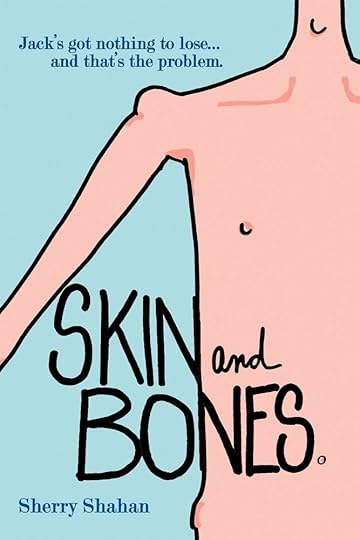
I spent months weighing the pros and cons of such a challenge:
Pros:
• The story would serve as an outline since the basic story arc was in place.
• Each character had a distinctive voice.
• The hospital setting was firmly fixed in my mind.
• The subject matter had proven itself to be of interest to readers.
• Proven ground is attractive to editors and publishers, as long as the topic is approached in a fresh way.
Cons:
• The story would require an additional 60,000 words.
• I would have to create a cast of secondary characters.
• Every character would require a realistic backstory.
• I would have to devise compelling subplots.
• Each scene would require richer subtext.
During the first draft I encountered a number of unexpected obstacles. For instance, how could I keep up the quirky tone without sounding flippant? Eating disorders (anorexia, bulimia, compulsive over-eating, etc.) are serious, and in too many instances, life-threatening. It took several drafts before the tone felt balanced.
More than one anorexic in my story figures out how to manipulate the system. After all, they’re experts at exploiting family, friends, and each other, as well their environment. Yet I worried about Skin and Bones becoming a how-to manual for those still in the throes of the disorder.
On the other hand, I knew I had to include information about the potentially grave consequences associated with the illness. But I didn’t want to sound didactic. Sometimes I sprinkled facts into zany scenes. Other times statistics emerged in dialogue between ranting patients. Either way, disseminating information felt more organic when slipped in sideways and not straight on.
During the process I was aware of the pulse of a novel and how it differs from a short story. The pacing is more generous. The theme more layered. I had the luxury of spending more time with my characters; involving myself in the intricacies of their motivation, goals, and actions.
I’m considering expanding another short story into a novel—this time exploring the psychological effects of abduction. After my experience with Skin and Bones, I’m keenly aware that a novel isn’t just a short story with padding. I’ve asked myself, Have I seen this topic before? Can I explore it in a way that’s truly original? These type of questions continue to challenge me as a novelist.
Sherry Shahan has nearly 40 books to her credit, fiction and nonfiction. She holds an MFA in Writing for Children and Young Adults from Vermont College of Fine Arts and teaches a writing course for UCLA Extension. When not writing she has studied dance in Cuba, snorkeled with penguins in the Galapagos, hiked a leech-infested rain forest in Australia, and gotten hopelessly lost on the backstreets of Istanbul. Visit her website.

Skin and Bones began as a quirky short story featuring teens in an Eating Disorders Unit of a metropolitan hospital. (read more about a real life struggle with this issue here). It sold to several literary journals and YA anthologies around the world. My agent kept encouraging me to expand the five-page story into a novel.

I spent months weighing the pros and cons of such a challenge:
Pros:
• The story would serve as an outline since the basic story arc was in place.
• Each character had a distinctive voice.
• The hospital setting was firmly fixed in my mind.
• The subject matter had proven itself to be of interest to readers.
• Proven ground is attractive to editors and publishers, as long as the topic is approached in a fresh way.
Cons:
• The story would require an additional 60,000 words.
• I would have to create a cast of secondary characters.
• Every character would require a realistic backstory.
• I would have to devise compelling subplots.
• Each scene would require richer subtext.
During the first draft I encountered a number of unexpected obstacles. For instance, how could I keep up the quirky tone without sounding flippant? Eating disorders (anorexia, bulimia, compulsive over-eating, etc.) are serious, and in too many instances, life-threatening. It took several drafts before the tone felt balanced.
More than one anorexic in my story figures out how to manipulate the system. After all, they’re experts at exploiting family, friends, and each other, as well their environment. Yet I worried about Skin and Bones becoming a how-to manual for those still in the throes of the disorder.
On the other hand, I knew I had to include information about the potentially grave consequences associated with the illness. But I didn’t want to sound didactic. Sometimes I sprinkled facts into zany scenes. Other times statistics emerged in dialogue between ranting patients. Either way, disseminating information felt more organic when slipped in sideways and not straight on.
During the process I was aware of the pulse of a novel and how it differs from a short story. The pacing is more generous. The theme more layered. I had the luxury of spending more time with my characters; involving myself in the intricacies of their motivation, goals, and actions.
I’m considering expanding another short story into a novel—this time exploring the psychological effects of abduction. After my experience with Skin and Bones, I’m keenly aware that a novel isn’t just a short story with padding. I’ve asked myself, Have I seen this topic before? Can I explore it in a way that’s truly original? These type of questions continue to challenge me as a novelist.
Sherry Shahan has nearly 40 books to her credit, fiction and nonfiction. She holds an MFA in Writing for Children and Young Adults from Vermont College of Fine Arts and teaches a writing course for UCLA Extension. When not writing she has studied dance in Cuba, snorkeled with penguins in the Galapagos, hiked a leech-infested rain forest in Australia, and gotten hopelessly lost on the backstreets of Istanbul. Visit her website.
Published on July 04, 2014 05:30
July 2, 2014
Wednesday Wisdom
"How wonderful it is that no one has to wait but can start right now to gradually change the world!"
Anne Frank
Anne Frank
Published on July 02, 2014 05:30
June 27, 2014
Friend Friday
I am happy as a hound dog on the trail that Nancy Castaldo is my guest today! Nancy and I met while on the faculty of the Highlights Foundation Historical Novel Workshop in November 2013. She had some f&gs of her new book, Sniffer Dogs, there and I was completely entranced and I know you will be, too. Take it away, Nancy!
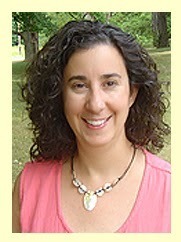 Nancy Castaldo
Nancy Castaldo
You walk in the door and your dog greets you nose first. It happens to everyone who owns a dog. But did you know that your dog’s welcome sniff gives it a recap of your day? You never need to tell your dog that you petted your friend’s new puppy or dropped a drip of ice cream on your pants or walked through the tall grass at the park. Their nose knows!

Sniffer Dogs: How Dogs (and Their Noses) Save The World introduces readers to many amazing working dogs. A story of a local moose population study inspired me to write this book. When I heard that dogs were brought in to sniff out the moose scat I was intrigued. That’s poop in less scientific terms! This was not the way I was taught to conduct population studies in my college ecology class. But I quickly learned that sniffer dogs are a terrific non-invasive way to conduct a study.
I had a blast researching this book. I watched dogs sniff out accelerants at a fire scene, patrol Grand Central Station, train in the desert for search and rescue, sniff out cremation remains in the North Carolina woods and detect a diabetic boy’s sugar level from the bleachers at a high school basketball game.
One of my favorite parts of researching this book was learning that most of these dogs were rescued from animal shelters. Having volunteered at a kill shelter as a teen I was thrilled to see these dogs find a new life. Some were even on death row. It also reminded me of how we all can make a difference.
Sniffer Dogs comes out July 8 from Houghton Mifflin. I’m working on another book for them right now that will come out next year. Research for that one has taken me as far away as Russia, but without the pooches.
Nancy is a long time member of the Society of Childrens Book Writers and Illustrators, key in planning the annual Falling Leaves Master Retreat, in Eastern New York. You can learn more about Nancy at her blog, or follow her on Twitter. Hear her pronounce her name here.
 Nancy Castaldo
Nancy Castaldo
You walk in the door and your dog greets you nose first. It happens to everyone who owns a dog. But did you know that your dog’s welcome sniff gives it a recap of your day? You never need to tell your dog that you petted your friend’s new puppy or dropped a drip of ice cream on your pants or walked through the tall grass at the park. Their nose knows!

Sniffer Dogs: How Dogs (and Their Noses) Save The World introduces readers to many amazing working dogs. A story of a local moose population study inspired me to write this book. When I heard that dogs were brought in to sniff out the moose scat I was intrigued. That’s poop in less scientific terms! This was not the way I was taught to conduct population studies in my college ecology class. But I quickly learned that sniffer dogs are a terrific non-invasive way to conduct a study.
I had a blast researching this book. I watched dogs sniff out accelerants at a fire scene, patrol Grand Central Station, train in the desert for search and rescue, sniff out cremation remains in the North Carolina woods and detect a diabetic boy’s sugar level from the bleachers at a high school basketball game.
One of my favorite parts of researching this book was learning that most of these dogs were rescued from animal shelters. Having volunteered at a kill shelter as a teen I was thrilled to see these dogs find a new life. Some were even on death row. It also reminded me of how we all can make a difference.
Sniffer Dogs comes out July 8 from Houghton Mifflin. I’m working on another book for them right now that will come out next year. Research for that one has taken me as far away as Russia, but without the pooches.
Nancy is a long time member of the Society of Childrens Book Writers and Illustrators, key in planning the annual Falling Leaves Master Retreat, in Eastern New York. You can learn more about Nancy at her blog, or follow her on Twitter. Hear her pronounce her name here.
Published on June 27, 2014 05:30
June 26, 2014
From the Office of the Future of Reading
When my daughter was in first grade, she came home every Monday with a stomachache. I didn’t tumble to the source of said tummy troubles until I shadowed her one day. Here’s what I learned: our sweet, sensitive, creative, book loving first grader had the librarian from hell.
Monday was first grade library day. And that time in the library was all about putting the books back EXACTLY where they’d been found and only reading what had been given you by the librarian. And god forbid the librarian catch you touching a book out of your reading ability.
Needless to say, I began volunteering in the library every Monday, doing everything I could (in a kind yet completely subversive way) to counteract the toxic impact of that horrible person who called himself a librarian.
Which leads me to today: the end of this year’s run of the feature I call From the Office of the Future of Reading. Every time I uploaded a post from one of the amazing teachers/librarians who volunteered to share their thoughts in this space, I would sigh: if only. If only. Every single one of the past year’s 80+ guest bloggers would’ve made my daughter’s grade school library experience sheer heaven. If only.
Consider all of the pressures on today’s educators: the push to focus on standardized testing, the pull away from reading aloud; constant criticism of public education along with constant reduction in funds for same. These are merely the tips of the iceberg.
And yet.
In this past year 80+ busy, overworked and underpaid teachers and librarians took time from their families to write guest posts for my blog simply because they cared so much about connecting kids and books. These outstanding educators gave up precious free time to crank out 300-500 words about what they’d done to build a community of readers through book clubs, trailers and book-related crafts. I couldn’t offer any payment and yet they stayed up later than was healthy for them to compose essays that shared their passion for poetry, breakfast book clubs or Skype visits.
The past two years of hosting teachers and librarians on this site have allowed me to sleep more sweetly, more deeply, and with pure hope. How could I not sleep soundly with the knowledge that so many great people are working so hard to ensure a nation of readers? A nation of folks who will find the will to treat others kindly, who can unravel slogans to uncover truth, who discover that one plus one equals the power to change god-awful circumstances, whether it be sweat shop conditions or gun control laws or rules of common courtesy.
I am struggling because I don’t know if I can continue this feature. It requires a lot of time and energy. I’m cogitating upon what to do next (ideas and suggestions welcome). Regardless of whether or not this feature, From the Office of the Future of Reading, continues, I know the efforts to protect and energize the future of reading will persist.
I know because I’ve seen what our teachers and librarians can do. And they can work miracles.
With a full and grateful heart, I sign off for the summer:
Warmly,
Kirby
Monday was first grade library day. And that time in the library was all about putting the books back EXACTLY where they’d been found and only reading what had been given you by the librarian. And god forbid the librarian catch you touching a book out of your reading ability.
Needless to say, I began volunteering in the library every Monday, doing everything I could (in a kind yet completely subversive way) to counteract the toxic impact of that horrible person who called himself a librarian.
Which leads me to today: the end of this year’s run of the feature I call From the Office of the Future of Reading. Every time I uploaded a post from one of the amazing teachers/librarians who volunteered to share their thoughts in this space, I would sigh: if only. If only. Every single one of the past year’s 80+ guest bloggers would’ve made my daughter’s grade school library experience sheer heaven. If only.
Consider all of the pressures on today’s educators: the push to focus on standardized testing, the pull away from reading aloud; constant criticism of public education along with constant reduction in funds for same. These are merely the tips of the iceberg.
And yet.
In this past year 80+ busy, overworked and underpaid teachers and librarians took time from their families to write guest posts for my blog simply because they cared so much about connecting kids and books. These outstanding educators gave up precious free time to crank out 300-500 words about what they’d done to build a community of readers through book clubs, trailers and book-related crafts. I couldn’t offer any payment and yet they stayed up later than was healthy for them to compose essays that shared their passion for poetry, breakfast book clubs or Skype visits.
The past two years of hosting teachers and librarians on this site have allowed me to sleep more sweetly, more deeply, and with pure hope. How could I not sleep soundly with the knowledge that so many great people are working so hard to ensure a nation of readers? A nation of folks who will find the will to treat others kindly, who can unravel slogans to uncover truth, who discover that one plus one equals the power to change god-awful circumstances, whether it be sweat shop conditions or gun control laws or rules of common courtesy.
I am struggling because I don’t know if I can continue this feature. It requires a lot of time and energy. I’m cogitating upon what to do next (ideas and suggestions welcome). Regardless of whether or not this feature, From the Office of the Future of Reading, continues, I know the efforts to protect and energize the future of reading will persist.
I know because I’ve seen what our teachers and librarians can do. And they can work miracles.
With a full and grateful heart, I sign off for the summer:
Warmly,
Kirby
Published on June 26, 2014 05:30
From the Office of the Future of Reading: Farewell (perhaps)
When my daughter was in first grade, she came home every Monday with a stomachache. I didn’t tumble to the source of said tummy troubles until I shadowed her one day. Here’s what I learned: our sweet, sensitive, creative, book-loving first grader had the school librarian from hell.
Monday was first grade library day. And that time in the library was all about putting the books back EXACTLY where they’d been found and only reading what had been given you by the librarian. And god forbid you get caught touching a book out of your reading ability.
Needless to say, I began volunteering in the library every Monday, doing everything I could (in a kind yet completely subversive way) to counteract the toxic impact of that horrible person who called himself a librarian.
Which leads me to today: the end of this year’s run of the feature I call From the Office of the Future of Reading. Every time I uploaded a post from one of the amazing teachers/librarians who volunteered to share their thoughts in this space, I would sigh: if only. If only. Every single one of the past year’s 80+ guest bloggers would’ve made my daughter’s grade school library experience sheer heaven. If only.
Consider all of the pressures on today’s educators: the push to focus on standardized testing, the pull away from reading aloud; constant criticism of public education along with constant reduction in funds for same. These are merely the tips of the iceberg.
And yet.
In this past year 80+ busy, overworked and underpaid teachers and librarians stole time from their families to write guest posts for my blog simply because they cared so much about connecting kids with books. These outstanding educators gave up precious free hours to crank out several hundred words about what they’d done to build a community of readers through book clubs, trailers and book-related crafts. I couldn’t offer any payment and yet they stayed up later than was healthy to compose essays that shared their passion for poetry, breakfast book clubs or Skype visits.
The past two years of hosting teachers and librarians on this site have allowed me to sleep more sweetly, more deeply, and with pure unadulterated hope. How could I not with the knowledge that so many great people are working so hard to ensure a nation of readers? A nation of readers who will find the courage to treat others kindly, who will unravel slogans to uncover truth, who will discover that one plus one equals the power to change god-awful circumstances, whether it be sweat shop conditions or gun control laws or disparate opportunities.
So I must honor the past years’ contributors with the truth: I am struggling because I don’t know if I can continue this feature. It requires a lot of time and energy; both quantities that seem in short supply in the Larson household. I’m cogitating about what to do next (ideas and suggestions welcome!!!). Regardless of whether or not this feature, From the Office of the Future of Reading, continues, I know the efforts to protect and energize the future of reading will persist.
I know because I’ve seen what our teachers and librarians can do: Work miracles.
With a full and grateful heart, I sign off for the summer:
Warmly,
Kirby
Monday was first grade library day. And that time in the library was all about putting the books back EXACTLY where they’d been found and only reading what had been given you by the librarian. And god forbid you get caught touching a book out of your reading ability.
Needless to say, I began volunteering in the library every Monday, doing everything I could (in a kind yet completely subversive way) to counteract the toxic impact of that horrible person who called himself a librarian.
Which leads me to today: the end of this year’s run of the feature I call From the Office of the Future of Reading. Every time I uploaded a post from one of the amazing teachers/librarians who volunteered to share their thoughts in this space, I would sigh: if only. If only. Every single one of the past year’s 80+ guest bloggers would’ve made my daughter’s grade school library experience sheer heaven. If only.
Consider all of the pressures on today’s educators: the push to focus on standardized testing, the pull away from reading aloud; constant criticism of public education along with constant reduction in funds for same. These are merely the tips of the iceberg.
And yet.
In this past year 80+ busy, overworked and underpaid teachers and librarians stole time from their families to write guest posts for my blog simply because they cared so much about connecting kids with books. These outstanding educators gave up precious free hours to crank out several hundred words about what they’d done to build a community of readers through book clubs, trailers and book-related crafts. I couldn’t offer any payment and yet they stayed up later than was healthy to compose essays that shared their passion for poetry, breakfast book clubs or Skype visits.
The past two years of hosting teachers and librarians on this site have allowed me to sleep more sweetly, more deeply, and with pure unadulterated hope. How could I not with the knowledge that so many great people are working so hard to ensure a nation of readers? A nation of readers who will find the courage to treat others kindly, who will unravel slogans to uncover truth, who will discover that one plus one equals the power to change god-awful circumstances, whether it be sweat shop conditions or gun control laws or disparate opportunities.
So I must honor the past years’ contributors with the truth: I am struggling because I don’t know if I can continue this feature. It requires a lot of time and energy; both quantities that seem in short supply in the Larson household. I’m cogitating about what to do next (ideas and suggestions welcome!!!). Regardless of whether or not this feature, From the Office of the Future of Reading, continues, I know the efforts to protect and energize the future of reading will persist.
I know because I’ve seen what our teachers and librarians can do: Work miracles.
With a full and grateful heart, I sign off for the summer:
Warmly,
Kirby
Published on June 26, 2014 05:30
June 25, 2014
Wednesday Wisdom
"I write when I'm inspired and I see to it that I'm inspired at nine o'clock every morning."
Peter de Vries
Peter de Vries
Published on June 25, 2014 05:30



